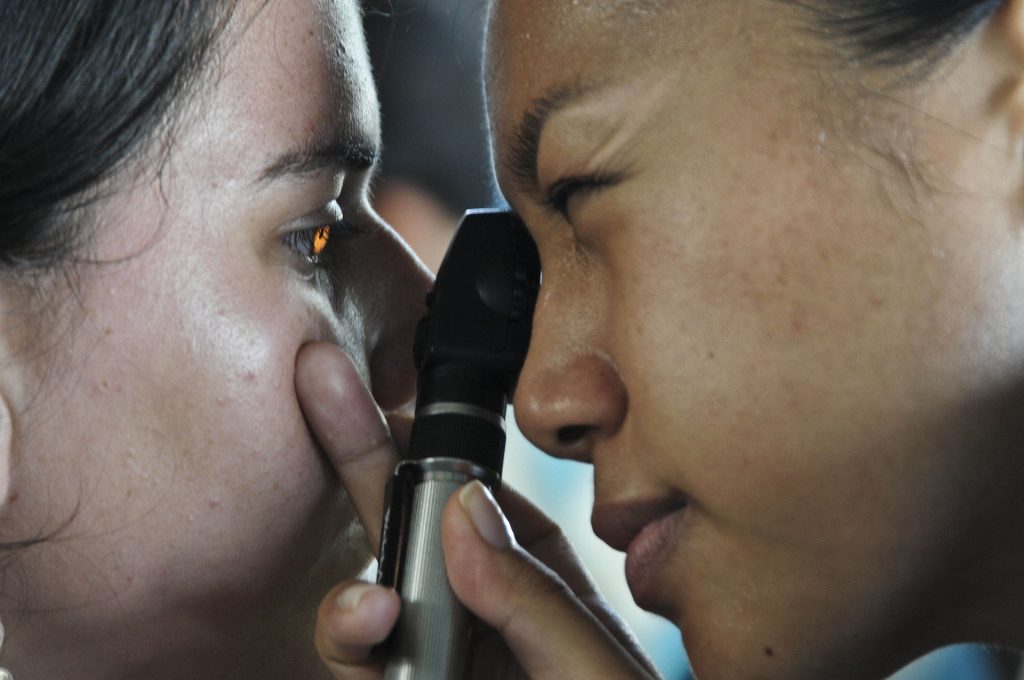Diabetic retinopathy is a serious eye condition that affects people with diabetes. The condition occurs when high levels of glucose in the blood damage the blood vessels in the retina, the light-sensitive tissue at the back of the eye that helps to convert light into electrical signals that are sent to the brain. Over time, this can lead to vision loss or blindness if left untreated. In the US alone, diabetic retinopathy affects more than 7 million people, making it one of the leading causes of blindness among adults.
Fortunately, there are treatments available that can help to slow or even reverse the progression of diabetic retinopathy. One such treatment is aflibercept, a medication that works by blocking a protein called vascular endothelial growth factor (VEGF) that is responsible for promoting the growth of abnormal blood vessels in the retina. By inhibiting this protein, aflibercept can help to reduce the risk of vision loss in people with diabetic retinopathy.
To investigate the efficacy of aflibercept in treating diabetic retinopathy, a team of researchers conducted a randomized clinical trial at 64 clinical sites in the US and Canada. The study involved 399 eyes that were randomly assigned to receive either two mg aflibercept or placebo treatment. Over the course of four years, participants received eight injections at defined intervals, continuing quarterly through four years unless the eye improved to mild nonproliferative diabetic retinopathy (NPDR) or better.
The study found that people receiving aflibercept were 23% less likely to develop eye conditions such as diabetic retinopathy compared to those on placebo treatment. Specifically, 33.9% of people using aflibercept developed proliferative diabetic retinopathy (PDR) or centre-involved diabetic macular edema (CI-DME), while more than half of the people receiving placebo treatment went on to develop PDR or CI-DME. The four-year cumulative probability of developing PDR or CI-DME with vision loss was 33.9% with aflibercept compared to 56.9% with placebo.
The study also found that treatment with aflibercept did not increase the risk of cardiovascular or cerebrovascular events, which are potential side effects of this medication. The Antiplatelet Trialists’ Collaboration cardiovascular/cerebrovascular event rates were 9.9% in bilateral participants, 10.9% in unilateral aflibercept participants, and 7.8% in unilateral placebo participants.
These findings are significant because they suggest that aflibercept can be an effective treatment option for people with diabetic retinopathy. By reducing the risk of vision loss and other complications associated with the condition, aflibercept can help to improve the quality of life for people with diabetes.
It’s important to note, however, that like any medication, aflibercept may cause side effects. The most common side effects of aflibercept include eye pain, redness, and swelling, as well as an increased risk of eye infections. Some people may also experience changes in vision or a feeling of pressure in the eye after receiving injections of aflibercept. These side effects are generally mild and temporary, but people who experience persistent or severe symptoms should speak to their healthcare provider.
In addition to medication, there are other steps that people with diabetes can take to reduce their risk of developing diabetic retinopathy. These include maintaining tight control of blood glucose levels, getting regular eye exams, quitting smoking, and controlling high blood pressure and cholesterol levels.
In conclusion, the study’s findings suggest that aflibercept can be an effective treatment option for people with diabetic retinopathy, reducing the risk of vision loss and other complications associated with the condition. While like any medication, it may cause side effects, these are generally mild and temporary. People with diabetesRegenerate response
